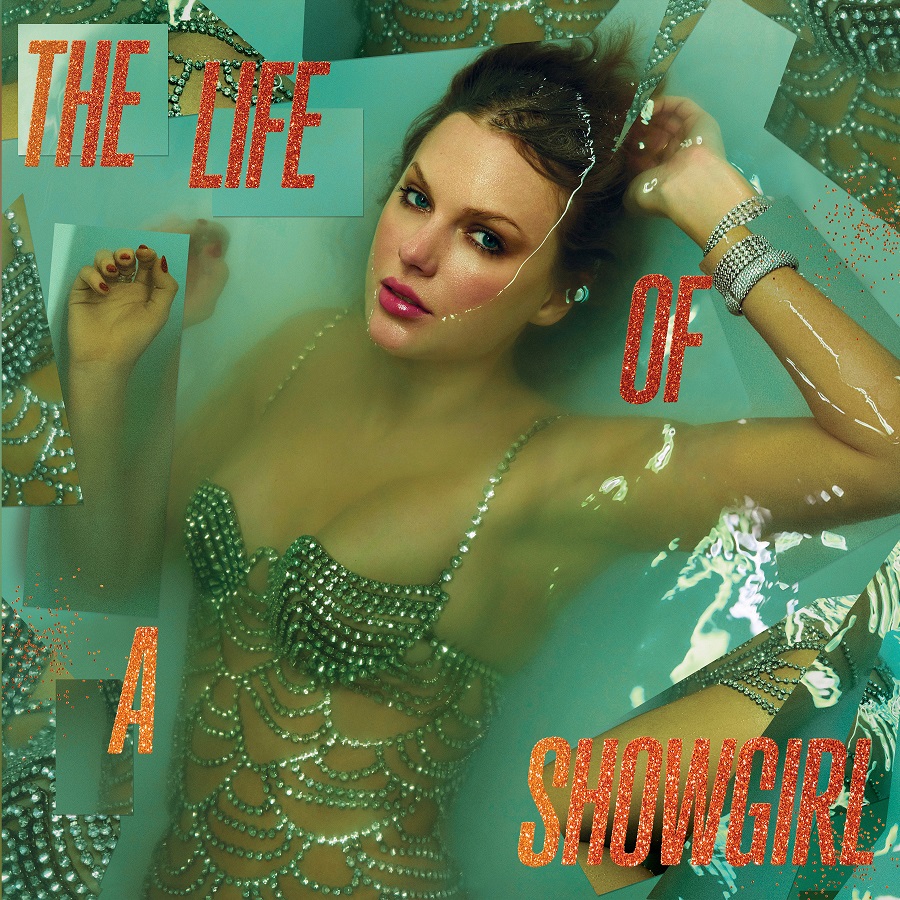Taylor Swift – The Life of a Showgirl
After the claustrophobic, lyrically overstuffed “The Tortured Poets Department,” Taylor Swift’s twelfth studio album feels like a window flung wide open. With just twelve tracks and a runtime under forty-five minutes, Swift opts for surgical precision where she previously indulged in emotional excess. The result is paradoxical: this is simultaneously her least ambitious and most successful pop album in years.
The reunion with Max Martin and Shellback, for the first time since “Reputation,” could easily have been a cynical, safe choice. A relapse into the polished but soulless hit factories these Swedish supersonics produce for any pop star with a credit card and a deadline. But something remarkable happens here: Swift forces them into minimalism. Where Caroline Polachek builds sculptural sound textures or Yelle deconstructs pop DNA with postmodern irony, Swift goes for something much more focused, and in these times almost subversive: deceptively simple pop songs that are unashamed of their own beauty.
‘The Fate of Ophelia’ opens with acoustic guitar and steel guitar, as if Fleetwood Mac had walked into the studio during a recording session in Stockholm. It’s a clever move: Swift immediately positions herself outside the hyperpop chaos currently dominating the charts. This is grown-up pop, unashamed of melody or sentimentality. The production breathes space, something Martin and Shellback rarely dare. The power lies in what Swift dares to leave out. Tracks like “Opalite” and “Ruin the Friendship” could have expanded into epic productions with twenty layers of keyboards and vocoder orgies in other hands. Here they remain lean, hungry, with melodies that brand themselves into your memory. The quotation of the Ronettes’ “Be My Baby” does not sound like retro kitsch but a logical genealogy: this is classic pop craftsmanship, period.
Of course, there are weaknesses. “Wood” tries too hard to be funny with its Jackson 5 pastiche, and “Elizabeth Taylor” feels like a B-side that accidentally ended up on the final tracklist. And yes, Swift’s diss tracks, catchy as they are, lack the venomous intelligence of, say, a Lorde or the conceptual sharpness of a Polachek. “Father Figure” borrows from George Michael but entirely misses his erotic ambiguity.
But that’s not really what this album is about. Swift has achieved something rare: making a pop album about happiness that doesn’t slip into banal sentimentality or self-satisfaction. Track five, traditionally her most vulnerable song, is called “Eldest Daughter” and contains the line about not believing in a marriage that proves to be a lie. In a culture obsessed with romanticising heartbreak, sustained happiness is almost subversive material.
The limited scope is liberating. Where Yelle deconstructs and Polachek reconstructs, Swift opts for something simpler: perfection within strict limits. It is the discipline of an artist who has nothing left to prove and, therefore, dares everything. In a landscape where avant-pop dominates discourse and conceptual complexity functions as an artistic certificate, Swift deliberately makes simple, direct pop songs, winning the grand prize in the process.
“The Life of a Showgirl” is no paradigm shift like “Folklore” or cultural atomic bomb like “1989.” It is something humbler and ultimately more valuable: an album proving that craftsmanship and joy need not be opposites. Swift will never be the architect that Polachek is, or the conceptual provocateur that Yelle can be. But nobody writes catchier hooks, and on this album, she has finally found producers who enhance rather than overshadow her. (8/10) (Republic Records)





